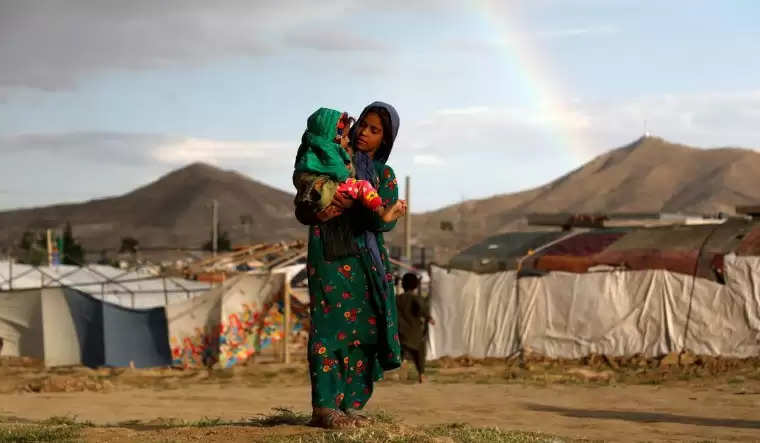UN aid director asks G20 to prevent mass starvation in Afghanistan.

The UN humanitarian head had a stark message for the leaders of the world's 20 greatest countries gathered this weekend: worry about Afghanistan because its economy is crumbling and half of the population faces famine as snow begins to fall.
Martin Griffiths told The Associated Press on Friday that "the demands in Afghanistan are increasing." Half of the Afghan children under the age of five are at risk of acute malnutrition, and there is a measles outbreak in every province, which he describes as "a red light" and "the canary in the mine" for what is going on in society.
Griffiths cautioned that food insecurity leads to hunger, disease, and mortality, and that "in the absence of corrective action," the world will witness deaths in Afghanistan. He stated that the World Food Program is now feeding four million people in Afghanistan, but the UN anticipates that due to the harsh winter circumstances and economic collapse, it would have to feed twice that number - 12 million Afghans — "and that's tremendous."
WFP requested USD200 million this week to fund its operations through the end of the year, and Griffiths urged countries that halted development assistance for Afghanistan following the Taliban takeover on August 15, including the United States and European countries, to redirect that money to desperately needed humanitarian aid. He stated that the European Union has already allocated approximately 100 million euros to humanitarian efforts.
Griffiths stated that the current situation is the result of two big droughts in recent years, the disruption of services during the battle between the Taliban and the Afghan government, and the economic collapse. "So, the message I would deliver to the G20 leaders is concern about economic collapse in Afghanistan, because the economic collapse in Afghanistan will, of course, have an exponential effect on the region," he said. "And the precise issue that I would encourage them to focus on first is getting funds into the Afghan economy — not into the hands of the Taliban, but into the hands of people whose access to their own bank accounts is not frozen," Griffiths added that it is also vital that frontline health workers, teachers, and others are paid.
He stated that various proposals are being explored with increasing urgency in order to inject liquidity into the market and that an immediate response is required this year, not next spring. Among the suggestions include physically transporting cash into Afghanistan, which Griffiths described as having "several issues," and using the local Afghani currency. However, the challenge is how to encourage traders to safely deliver Afghanis for use by humanitarian organizations, and "they will probably only do that if they think they can acquire external cash for those Afghanis," he said.
Griffiths warned of the exponential repercussions of an economic collapse, stating that the first concern is that if people do not have access to services, food, education for their children, and health care, they will relocate, either within the country or to Afghanistan, in order to survive.
The second source of concern, he continued, is the growing problem of terrorism, "which normally grows in times of uncertainty and pain." "And it would be a dreadful legacy to visit all of Afghanistan's people," Griffiths remarked. "So far, I think we're basically holding our breath regarding the country's stability and talking to the Taliban on a daily basis about what they need to do, for example, to ensure that women and girls have their rights." According to the UN undersecretary-general for humanitarian affairs, the Taliban must protect the rights of women and girls "because that is part of stabilizing Afghanistan."
.png)